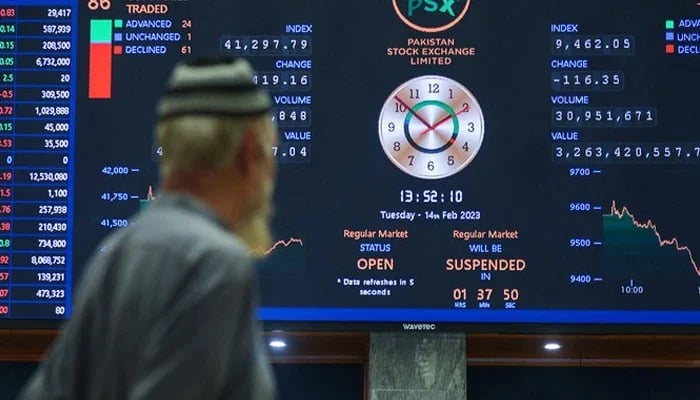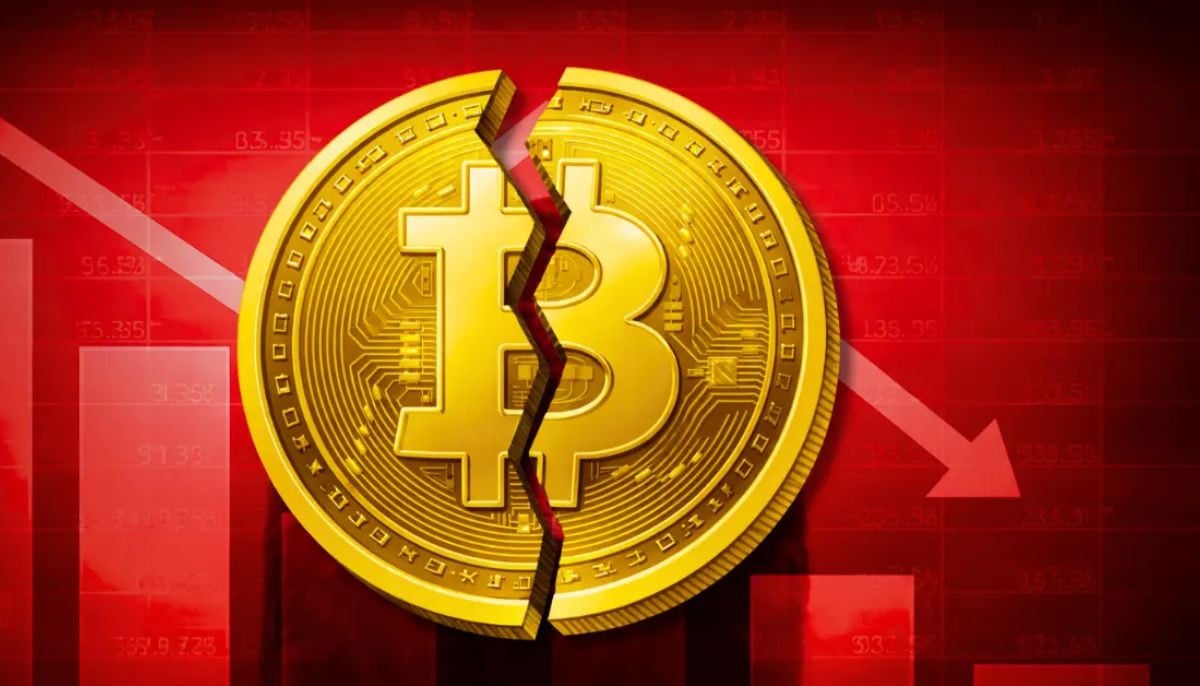PSX powers up by nearly 4,700 points fuelled by frenzied relief buying-binge
Given current trends, KSE-100 index can breach psychological barrier of 100,000 points this or next month, says analyst
Stocks rebounded with a vengeance on Wednesday, erasing nearly all of the last session’s losses as political tensions eased after Pakistan Tehreek-e-Insaf (PTI) "shelved" its three-day protest in Islamabad after law enforcement agencies launched an extensive operation to drive the protesters out of the federal capital.
A day after a bloodbath, at close, the Pakistan Stock Exchange's (PSX) benchmark KSE-100 Shares Index surged to 99,269.25, up 4695.09 points, or 4.96%, as compared to the previous close.
The equities shot up by a staggering 4,975.65 points, or 5.26%, to an intraday high of 99,549.8, reflecting restored sentiment — the largest single-day gain in five months, according to an analyst.
The market suffered an over 3,500-point crash on Tuesday after PTI's march on Islamabad turned violent, with angry protesters clashing with riot police and resulting in the martyrdom of at least three Rangers and two police personnel, according to government officials.
Meanwhile PTI has claimed that eight of its members lost their lives.
Muhammad Sohail, CEO of Topline Securities, explained the rapid recovery: "The market is completely back to normal. With reports confirming the protests had ended, investors who were selling yesterday are now in a buying mood."
"Within 10 minutes of trading, the index surged, recovering the approximate Rs 450-500 billion market loss incurred on Tuesday,” he added.
Projecting cautious optimism down the line, Sohail said it would take about a few more days for the market to fully stabilise, as investors were treading on eggshells while rebuilding their positions after Tuesday's tailspin.
"According to our report, we anticipate that the market could reach 127,000 points next year."
While predicting when the market will cross the 100,000 mark remains a challenge, the Topline executive said that this milestone was quite likely to be achieved this month or the next, given the current trends.
The rally came in response to PTI's announcement to temporarily call off its "do-or-die" protest, which had paralysed the federal capital since November 24.
The suspension followed a crackdown by law enforcement agencies, which dispersed protesters from Islamabad’s Red Zone.
In a press release by its central media cell, PTI stated: "In light of the government's brutality and plans to turn the federal capital into a "slaughterhouse" for unarmed citizens, we are announcing the temporary suspension of our peaceful protest."
The party added that future actions would be announced after consulting Imran Khan.
The easing of political unrest prompted a relief rally as investors, previously wary of prolonged instability, regained confidence and re-entered the market.
Muhammad Saad Ali, Director of Research at Intermarket Securities, attributed the market’s performance to improved investor sentiment: "The market is staging a relief rally today, following the news that the PTI protests have been quelled by the government. The market pared yesterday's big losses almost completely.”
“Banks are supporting the rally too,” he added. “Yesterday's removal of MDR on certain non-individuals deposits is a big positive for the large conventional banks—likely to support their earnings and payouts in 2025 amid falling interest rates."
The banking sector emerged as the key driver of the rally, benefiting from the State Bank of Pakistan's (SBP) removal of the Minimum Profit Rate (MPR) requirement on deposits from financial institutions, public sector enterprises, and public limited companies.
This decision, announced on Tuesday, has bolstered conventional banks by easing the burden of mandatory deposit reserves and improving profitability.
Previously, commercial banks were required to pay a minimum profit rate on all savings deposits, linked to the SBP repo rate. The removal of this requirement marks a shift in banking policy, aimed at facilitating large depositors and encouraging fair banking practices.
Analysts predict that the removal of the MPR will strengthen earnings and payouts for major banks in 2025, particularly as interest rates decline.
Additionally, the reversal of arbitrarily imposed charges on large accounts with deposits exceeding Rs1 billion has provided further relief to depositors.
The SBP's decision aligns with its efforts to promote transparency and protect the interests of both banks and depositors.
By relaxing these requirements, the central bank aims to create a more balanced and competitive banking environment.
-
Will Warner Bros finalize deal with Paramount or stays loyal with Netflix's offer?
-
$44 billion Bitcoin blunder: Bithumb exchange apologizes for accidental payout
-
Global memory chip crunch puts spotlight on Apple; Will iPhone become more pricey?
-
Bitcoin plummets toward $60,000 as investors dump risky bets
-
Bitcoin crashes below $63K as regulatory pressure and market fears grow
-
Bitwise Crypto Industry innovators ETF: What investors should do in 2026?
-
Nintendo shares slide again as momentum fears grow
-
Gold, silver prices fallen sharply; What’s driving the drop?












